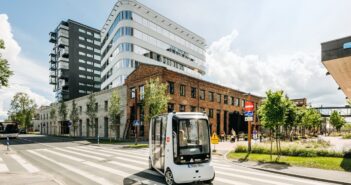Normally we use social media to see things like our friend’s travel logs, their children getting married or such. Today, Trump’s behaviour and the ensuing global reactions dominate social media. Normally the news includes a variety of social, weather and economic topics. Today, most of the national news headlines are reflections on what Trump said, tweeted, endorsed, condemned or signed.
It is literally impossible to escape Trump and those who support him cling to their optimistic view that regulations will be reduced, corporate tax rates will be lowered, individual income taxes will be reduced, infrastructure will be repaired, investment will increase and the under-employed will find new productive work. Those who opposed Trump’s behavoir and policy, cite his misogyny, racist, bigoted, bullying, anti-environment and less than scientific view of the world in a series of proven falsehoods they cannot accept as alternative facts.
Trump has alienated some of the US’s closest allies and many fear tariffs and trade wars that will economically backfire, hurting the lowest income households the most. Without temporary labor some say farmers will need to move to crops that require less labor. Strawberries, apricots and other soft crops will become much more expensive while farmers invest in more automation reducing the use of more expensive domestic labor. Cars become more expensive if anything made outside the US is border taxed. Perversely, this will drive firms to invest in even more automation, the very thing that killed 80% of manufacturing jobs in the first place, not cheap labor from abroad.
Objective analysts see positives in less regulation of banks and lower corporate income taxes, but are concerned about trade wars and accelerating the deficit to the point that interest rates are significantly driven up. Yet 2017 will be a good year for the US economically, independent of who is in office. At the same time, the US is due for a recession by 2020 and increased spending on military, infrastructure and (while hard to believe) a physical wall may delay this it will exacerbate the probability of a harder recession by 2021. A much deeper recession will eventually follow when politically untouchable entitlements (Social Security, Medicaid, Medicare) strain the budget to a breaking point. This may happen as late as 2030 or sooner, especially if the deficit balloons in the next three years under the guise of necessary stimulation.
What does all this mean for real estate? The prospect of lower capital gains taxes will cause a slowdown in the sales volume of deals in early 2017, and an acceleration catch up on sales once a lower tax rate is in effect. Lower tax rates in general will also lower the value of tax shelter albeit with faster depreciation and write offs likely. Higher interest rates by 100 basis points or more as we enter 2018 to 2020 will drive up cap rates and lower values, slightly offset by higher rents. Higher mortgage rates will particularly affect the lower home price tiers, while the upper tiers remain insulated from downside risks as wealth more than income drives such markets. Industrial property near ports may be negatively affected if the US gets into a trade war. Retail property, particularly department stores and big box stores are already suffering with online sales, and this decline will continue for the next several years. With net US population growth by 2025 expected to be 50% or more from immigration, prior to the election, those markets which have been more dependent on immigration will see a slowdown in the demand for rental or owned housing. Office property has seen a slowdown in the demand for traditional space but a steady demand for more sustainable naturally lit collaborative space.
This all suggests a very dynamic world over the next several years. The Pessimistics will sell. The optimists will wait. Only time will tell which of them will be right..
Image: Getty Images shakzu



